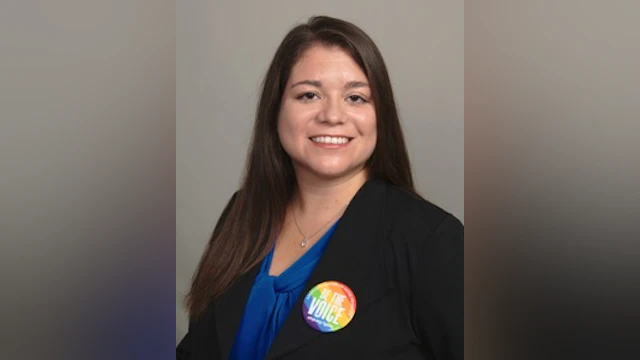As a mental health clinician in North Carolina, I have the honor of working exclusively with Latinx/Hispanics clients. Given the rapid growth of our Latinx/Hispanic population (18.5% of the U.S., the second-largest racial/ethnic group), it is imperative that clinicians and mental health providers who seek to serve our community educate themselves regarding the cultural considerations and challenges that come into play regarding treatment, stigma, and other factors. The sooner professionals and organizations educate themselves on these issues, the better equipped they will be in serving Latinx/Hispanic clients seeking mental health services.
I am, myself, an immigrant from Santiago, Chile, and I have lived experiences that inspire my advocacy and counseling work. One of the main challenges I see within my community, in finding appropriate and helpful mental health services, is the language barrier. Most of the Latinx/Hispanics clients I work with wish to only conduct sessions in Spanish. During sessions, being a fluent native Spanish speaker gives me a solid route of communication, and bilingual therapists are in high demand. It’s important that we create pathways in which Spanish speaking clients can receive mental health services in their preferred language, and that bilingual therapists receive the supervision and training they need.
I have also seen that for some Latinx/Hispanic clients, family comes first, while for others, God comes first. It is easier to assume that most Latinx//Hispanic families observe traditional religious practices such as Catholicism, but increasing numbers of Latinx/Hispanic people are practicing a more spiritual set of beliefs alongside, or in place of, their religious one. Therefore, it is important at the beginning of a session to ask clients what their religious and spiritual values are, and how they want those values incorporated in counseling.
Familism is also a key consideration in Latinx//Hispanic life. Most of my clients live in multigenerational households with parents, siblings and grandparents. Even extended family members might live in the same household. Since family units and support are vital, it is important – with my client’s permission, and as needed – to include family members in the counseling process.
As far as traditions go, El Día de lo Muertos (Day of the Dead) is a central one, especially for those experiencing complicated grief. Especially in these current times, several members of our community have had to grieve a loved one from afar, due to immigration challenges, as well as not being able to travel back to their country of origin, as they may be afraid of not being able to get back into the United States. Understanding these traditions, and how they can help someone grieve, can build trust, relationship and rapport with Latinx/Hispanic clients.
It is also important to honor the diversity of the country of origin that our Latinx clients represent. For example, I grew up in Chile, but I have yet to work with a Chilean client in North Carolina. That is because the Latinx/Hispanic people in our state represent several countries of origin, mostly from Central and North America such as Guatemala, El Salvador, and Mexico. It is important to know which country of origin your clients identify with, considering that they will also show pride in being from a particular country. One thing I always make sure to ask during intake, as well as throughout our time together, is: “Are there any traditions from your country that you think are important for me to know about?”
As an immigrant, I often reflect on my life before I immigrated. Growing up in a third world country makes you tough, but it also nurtures your resilience – and our clients are resilient. I engage my clients in counseling from that perspective: the belief that my clients have the tools to navigate their challenges, and they just need guidance and support. Immigration and documentation status can be a challenge to our resilience. Some clients will come to therapy with a traumatic immigration experience that cannot be ignored during counseling. It’s therefore important, as a clinician, to be trained in providing trauma informed services. My training in EMDR (Eye Movement Desensitization and Reprocessing) has certainly proven worthwhile in helping clients process their past and current traumas.
One of the main challenges my clients experience is the stigma of seeking mental health services. This stigma is rooted in our Latinx/Hispanic family values, and comes from a belief that is necessary to keep our problems within the family. “Lo que pasa en la familia se queda en la familia,” the saying goes: “what happened in the family stays in the family.” Showing empathy for the courage needed for someone to look for counseling services may also help in establishing a good client-provider relationship.
This stigma, however, is not the biggest barrier for Latinx/Hispanic seeking mental health services today: the lack of culturally appropriate services is. To overcome this challenge, therapists must be trained in culturally based evidence treatments, and this kind of training must be appropriately funded, supported, and accessible. Only then may we, as mental health professionals, best serve the Latinx/Hispanic population. AFSP and the National Latino Behavioral Health Association (NLBHA) have joined forces to ensure that Latinx/Hispanic folks have access to suicide prevention materials that are culturally oriented and centered around these important values. Together, we can make a difference.
Further Resources:
National Latino Behavioral Health Association
Latinx Mental Health Salud Mental Project
National Alliance for Hispanic Health
Mental Health America’s resources for Latinx/Hispanic Communities
You may reach Camila Pulgar on her Instagram page here, or by emailing her at [email protected].
